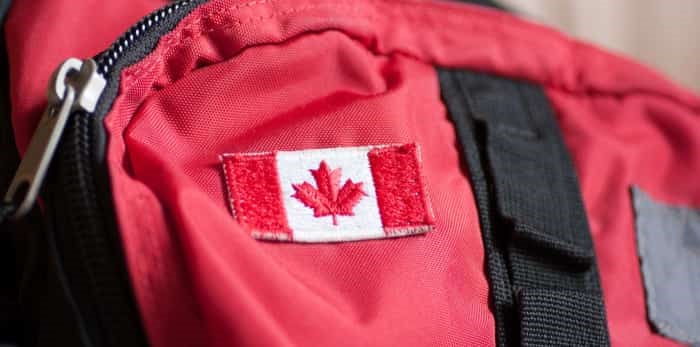Americans have been known to sew Canadian flags on their bags while travelling - but should they?
Canadians may have a global reputation for being kind, courteous and friendly travellers, but a recent Expedia travel survey found that they may not be global leaders in travel etiquette after all.
 Canadian flag on a backpack / Shutterstock
Canadian flag on a backpack / Shutterstock
According to Expedia's 2019 Airplane and Hotel Etiquette Study, American travellers tend to extend more acts of kindness and perform more courtesies to fellow passengers compared to Canadians. In fact, the travel company states that it, "It might come as a surprise, but Americans are some of the kindest and most considerate travellers in the world."
In the global survey, which polled more than 18,235 respondents across 23 countries, 42 per cent of Americans said they were willing to change seats and allow travelling companions to sit together versus 33 per cent of Canadians.
What's more, 21 per cent of Americans said they've helped entertain other people's children while traveling versus 14 per cent of Canadians.
"We are in the business of helping millions of people travel every year, and it's important to us that everybody has the best possible experience. How we interact with each other while traveling has a huge impact on how we feel about our trip, which is why we decided to dig in to some of the most common travel annoyances," says Nisreene Atassi, PR Director for Brand Expedia.
Of the 23 countries polled across North America, Europe, South America and Asia-Pacific, the United States emerged the least confrontational towards other passengers and flight crew: Nearly half of Americans said they believe the best way to address a seat-kicker is to speak with them politely, while 16 per cent said they would assume it's not intentional and say nothing.
With files from Relax News.


